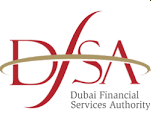The DFSA operates as an autonomous financial regulator under the authorization of the Dubai International Financial Center (DIFC). The operations run by the DFSA are Policy and Rulemaking, Authorization, Recognition, Supervision, Enforcement, and International Cooperation. The DFSA also regulates NASDAQ Dubai (aka DIFX) and the Dubai Mercantile Exchange (DME).
The organization’s method of operation is “To be a risk-based regulator and to avoid the unnecessary regulatory burden,” which means that severe laws or rulemaking are the same as having no laws at all. That is why the best approach is to be moderate in all aspects. In this way, all parties can work within the proposed framework and be as effective and proficient as possible and at the same time have a free hand in their overall activities so that the markets can run smoothly.
As any other well-established regulatory authority around the world, the DFSA strives to be among the best proponents of practicing financial services within the compounds of laws and regulations. The organization sets its future outlook, where it concerns the wellbeing of financial markets and the like, based on the framework proposed by the DIFC. Furthermore, the DIFC is administered by two complementary regimes, namely the Federal regime and the DIFC regime, both of which are under the supervision of the DFSA. To that end, the DFSA puts into effect certain laws and provisions and requires fair financial dealings and activities from its devoted members.
The DFSA prides itself on its professional, autonomous, and highly efficient management abilities in terms of its duties and obligations which are to be performed fairly and objectively. Moreover, the DFSA regulates the institutions, individuals, and participants whose financial conducts fall under the jurisdiction of the DIFC. So the members can rest assured that the organization’s authoritative approaches are according to the international standards and of course the DIFC itself.
When it comes to the safety, transparency, integrity, and unity of the financial markets – in which all the participants can cooperate and trust the system – the DFSA goes out of its way to ensure the preservation of such an environment for all. And this is all done by sticking to the laws and principles dictated by the DIFC.
Along the same lines, in terms of fairness and efficiency of offered financial services by the DFSA members, the DFSA makes it its business to see it through that nothing escapes the reach of the regulations, and therefore, the security, as well as stability of the markets, are guaranteed. These necessary steps and measures are taken, so the market atmosphere remains as risk-free as possible.
With all that in mind, as it is the case with all businesses, not all the DFSA registered members are law-abiding, and some of them have the proclivity towards breaking or bending the rules, in which case suitable sanctions and fines will be imposed. These precautionary measures will help to protect the clients and the providers of services alike. It is the DFSA’s objective to notify the public of any required information regarding the regulation of the financial services industry in the DIFC.
Besides, in 2014, the DFSA commenced a Financial Services Awareness initiative, Bawabaty ‘My Gateway,’ to the UAE youth sector in an attempt to raise awareness regarding financial services and work ethics. Another effective step taken by the DFSA is a Summer Training Program which enables the UAE undergraduates to work as interns to gain experience firsthand in the Corporate Affairs, Finance and Administration, Human Resources and Information Technology areas of the DFSA.
Moreover, the DFSA observes the objectives that are to be pursued under the Dubai law in conjunction with those of the supervisory authorities of the United Arab Emirates as well as other international regulators and organizations. The Regulatory Law 2004 is also considered as the basis for regulatory steps taken by the organization such as granting, suspending or revoking licenses, supervision, and registration. The DFSA is obliged, under the Markets law 2012, to monitor all its registered members by enforcing laws and regulations. Other noteworthy laws abided by the DFSA include the Law Regulating Islamic Financial Business 2004, the Collective Investment Law 2010 and the Investment Trust Law 2006. In 2006, the DFSA’s Collective Investment Fund Regime was introduced to protect the investors based on international standards. In addition to all the laws mentioned above, the DFSA also takes preventative measures in regards to money laundering activities within the DIFC in close collaboration with the UAE Central bank whenever necessary.
The DFSA is regularly monitored by oversight bodies - the Basel Committee on Banking Supervision (BCBS), the International Association of Insurance Supervisors (IAIS), and the International Organization of Securities Commissions (IOSCO) - so its conduct and quality of performance are examined and assessed in terms of the minimum standards required for the Banking, Insurance and Securities sectors. Other organizations that check up on the DFSA’s overall performance include the International Monetary Fund (IMF) and World Bank, in a joint effort to determine the Financial System Stability Assessments (FSAP) of the DFSA. It should be noted that certain countries or districts will be assessed under the Collective Investment Law 2010 to make certain that they meet the same set of criteria. In the same vein, the DFSA has signed a Mutual Recognition Agreement with the Securities Commission Malaysia concerning marketing and providing Islamic funds in a cross-border capacity.
Memorandum of Understanding (MoU)
The formal basis for interacting with other supervisory entities, is laid down based on a bi-lateral Memorandum of Understanding (MoU) which includes sharing info and helping out through investigations, within the confines of the law. The Multi-lateral MoUs are The International Organization of Securities Commissions (IOSCO), The Boca Declaration, International Association of Insurance Supervisors (IAIS), IOSCO Africa and Middle East Regional Committee (AMERC), and The International Forum of Independent Audit Regulators (IFIAR).
Firms, individuals, and market institutions that wish to conduct business in the DIFC need to be licensed and registered by the DFSA to make sure that they will fulfill the required legal conditions. These licenses specify what type of financial services can be provided by these licensees or in what capacity they can be a part of financial activities.
The DFSA appreciates the role and significance of creativity and technology and how they can increase the potential for the prosperity of financial markets. That is why the organization is willing to offer the Innovation Testing License (ITL) to the Financial Technology firms (FinTech) to give them a free hand in testing new products, services, and business models in a controlled and well-surveilled environment, provided that they meet the required conditions.
Firms and institutions that want to be authorized by the DFSA will have to show competency, honesty, as well as integrity. To determine whether these firms can meet the required standards, they will be assessed by the DFSA in terms of legal status, location of offices, ownership and group structure, adequate resources, and senior management. Moreover, all the applications will be processed and answered within ten business days – and up to four months of submission for final review – depending on the complexity of the request. Should the DFSA applicants need assistance in completing their applications, they can use the DFSA Rulebook, DFSA Sourcebook, Authorization inquiries, DIFCA Business Development Manager, Markets Division, and Recognition depending on the nature of help required.
Additionally, registered auditors are there to ensure that the financial activities in the market run smoothly, legally, as well as transparently. This way, the investors whose financial assets are at stake can rest assured and have confidence in the integrity of the markets. It is further noted that businesses or professions that are not authorized, e.g., auditors, are considered Designated Non-Financial Business or Profession (DNFBP). The DNFBP list may include but is not limited to real estate developers, dealers in precious metals/stones, dealer of items of +$15000, law firms, notary firms, independent legal businesses, and insolvency firms.
Islamic Finance
The DFSA’s approach to the financial markets is set in a flexible way that allows the Islamic financial services industry to be fitted in the same framework. This allows both the international standards and the Islamic financial laws to exist and find a proper balance together without interfering one another. The similarities between conventional finance and Islamic finance in terms of the risks call for simpler treatment so they can be approached in the same way. However, the differences between conventional finance and Islamic finance are to be treated differently in that the DFSA completely recognizes the structures and risks set forth by Islamic finance. The international Islamic standards and principles include the Accounting and Auditing Organization for Islamic Financial Institutions (AAOIFI) and the Islamic Financial Services Board (IFSB).
DFSA’s Islamic Finance Regulatory Regime
The firms that conduct financial activities following the Islamic Financial Business are required to have a special endorsement included in their licenses. Therefore, the systems proposed by these Islamic firms are to be in total compliance with those of Sharia. Since the DFSA is not a Sharia regulator, Sharia governance is the firms’ responsibility. For example, it is up to the firm to nominate the Sharia Supervisory Board (SSB), make sure the SSB’s rulings are heard by the relevant parties, and run Sharia review as well as internal audits regularly. Other rules and standards which ought to be observed by the said firms include the Prudential Regulation, Disclosure, Islamic Funds, Islamic Finance Tailored Handbooks, and Islamic Securities categories.
Supervision
The DFSA sees to it that all the regulated firms, markets, institutions, individuals, and ancillary service providers are abiding by the laws and provisions about the anti-money laundering. The DFSA takes extra care to bring to light those who jeopardize the integrity and entirety of the DIFC. Through risk-based supervision, the DFSA regularly monitors registered firms and companies in an attempt to build trust and a solid foundation upon which both the lawmakers and followers of the law can co-exist and prosper. To that end, the organization tries to keep the line of communication open with the firms’ senior management for a fruitful relationship using communication tools such as SEO Letters.
To pinpoint the risky areas which could put the markets at jeopardy, a risk management cycle comprised of identification, assessment, prioritization, and mitigation of risks is implemented by the DFSA. Moreover, each firm or institution may require a different tool for risk assessment, and these regulatory tools (e.g., thematic reviews) are selected by considering the costs for both the DFSA and the firm to protect the marketplace further. Among these risk assessment approaches, anti-money laundering and know-your-customer regulations are taken very seriously.
On a related note, the registered firms are also required to report noteworthy events to the DFSA; it falls under the responsibilities of the senior management to do so. All these preventative measures will be taken in proportion to the risks an authorized firm poses. To further open the lines of communication between itself and authorized firms, the DFSA supports other channels such as SEO Letters, Outreach Sessions, Alerts, and EPRS system.









